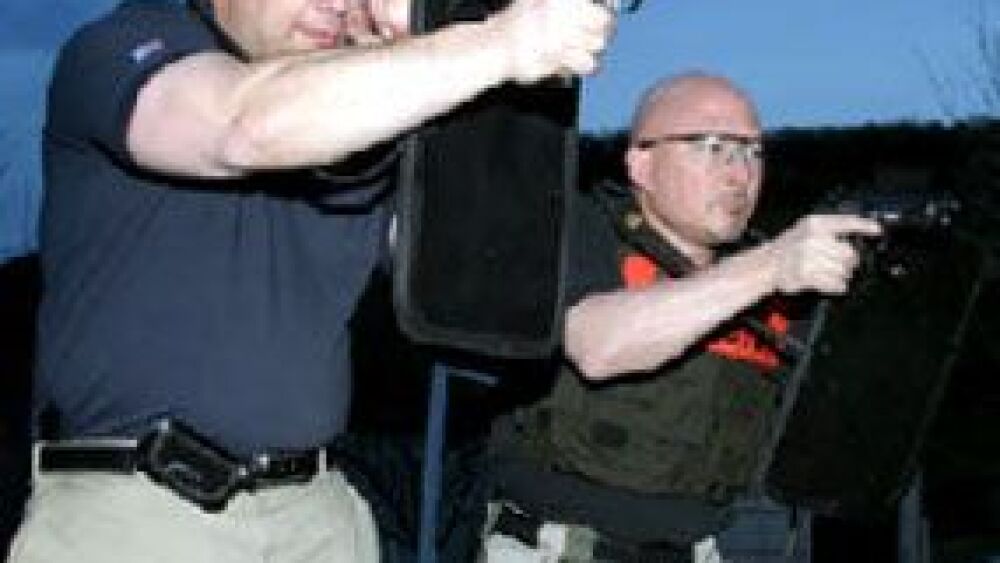One of the many booths to which I paid a visit during my time at SHOT Show 2012 in Las Vegas this week a company called Critical Safety Equipment. I had seen some information cross my desk at some point in the recent past about the Compact Ballistic Control Shield — the CBCS for short — and wanted to speak briefly with company president Clyde Caceres to get some details on the product.
“The impetus for us,” Caceres said, “was the fact that most shields are big, heavy, cumbersome and most aren’t readily available for deployment at the patrol level — at the response level. When you look at active shooter, school shootings, narcotics interventions, warrant service and high-risk traffic stops, this Compact Ballistic Control Shield is available immediately on hand.”
Caceres, whose background includes not only some law enforcement, but also a considerable period of time in specialty manufacturing (he was a co-founder at Crimson Trace, for example) told me that his focus is on innovation toward products that solve problems — often in a an “outside the box” way.
Compact and Lightweight
As Caceres spoke, I grabbed the CBCS from the table and was stunned at how light it is — definitely less than five pounds. Apparently manufactured from materials now being use to up-armor vehicles presently deployed downrange, the CBCS level IIIA shield is compact and lightweight, and one can easily visualize how it would be used on the street.
It comes with a Royal Arms two-point bungee sling and incorporates a flashlight which can mounted for either left-handed or right-handed operation (the gear arrives to you unassembled so you can set it up exactly how you want it). The flashlight actually becomes an important component whether or not you light it up — it serves as the handle to supplement the two break-away back straps.
“With the sling, it can be deployed in a non-confrontational way, ready for immediate deployment if things go sideways,” Caceres said.
The CBCS will retail for about $500 each, but agencies what order in number will “get a deal on price,” Caceres added. He pointed out also that many agencies are successfully pursuing grants for the purchase of this equipment.
Further, he told me that for officers who are interested in purchasing their own equipment individually, he’d do everything he can to help cops out.
“I always want to help officers. If an officer is willing to spend his own money in these times where agencies are cash-strapped, I’ll do what I can to help make it good for him.”



